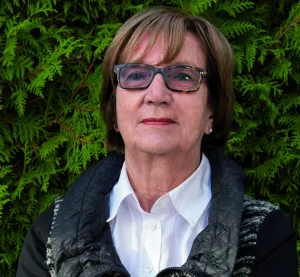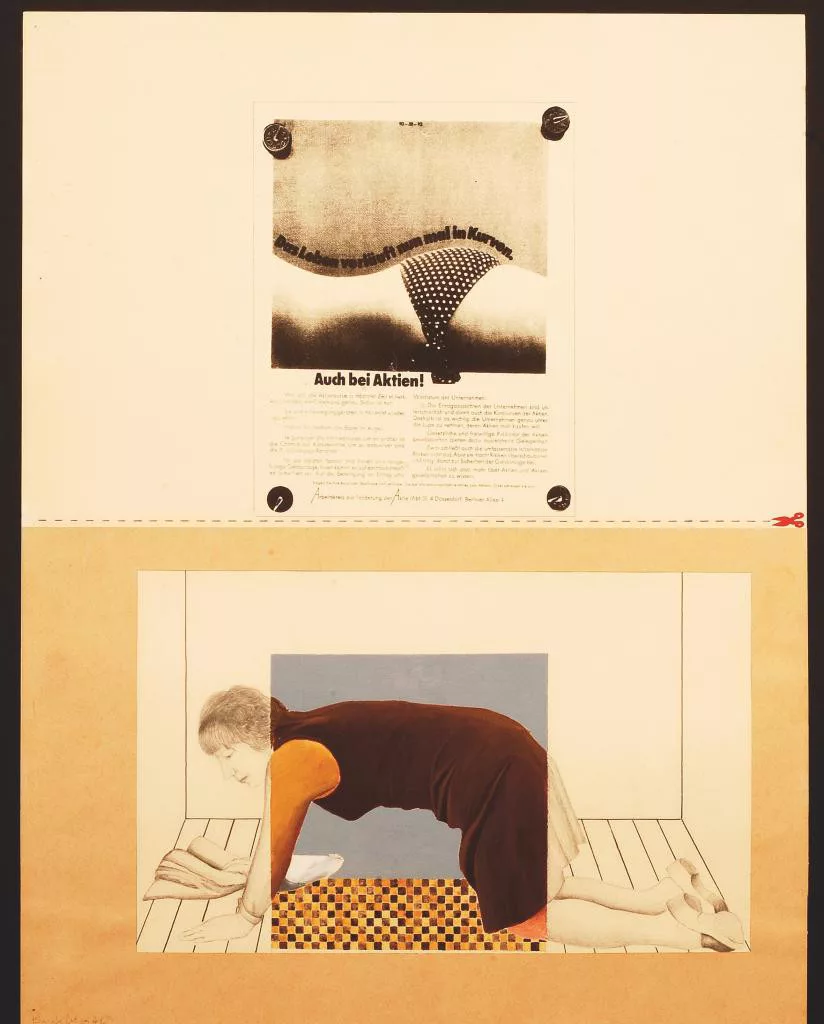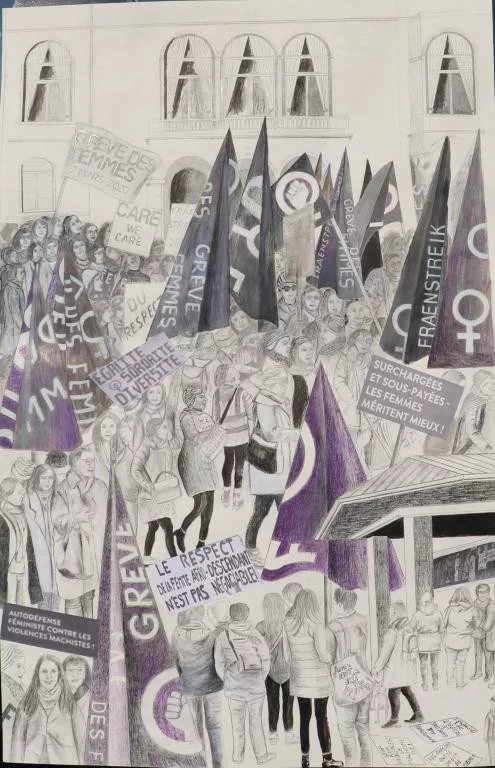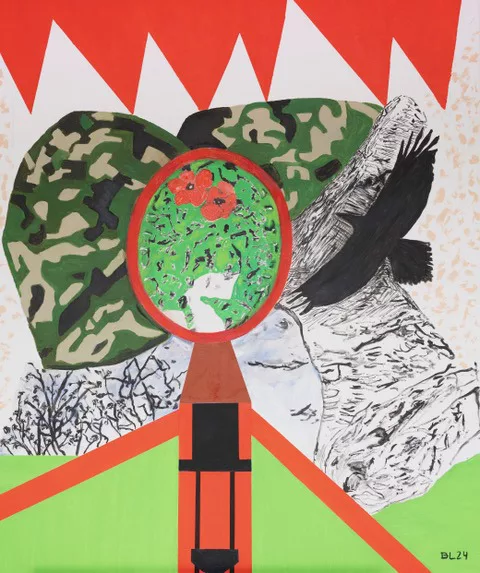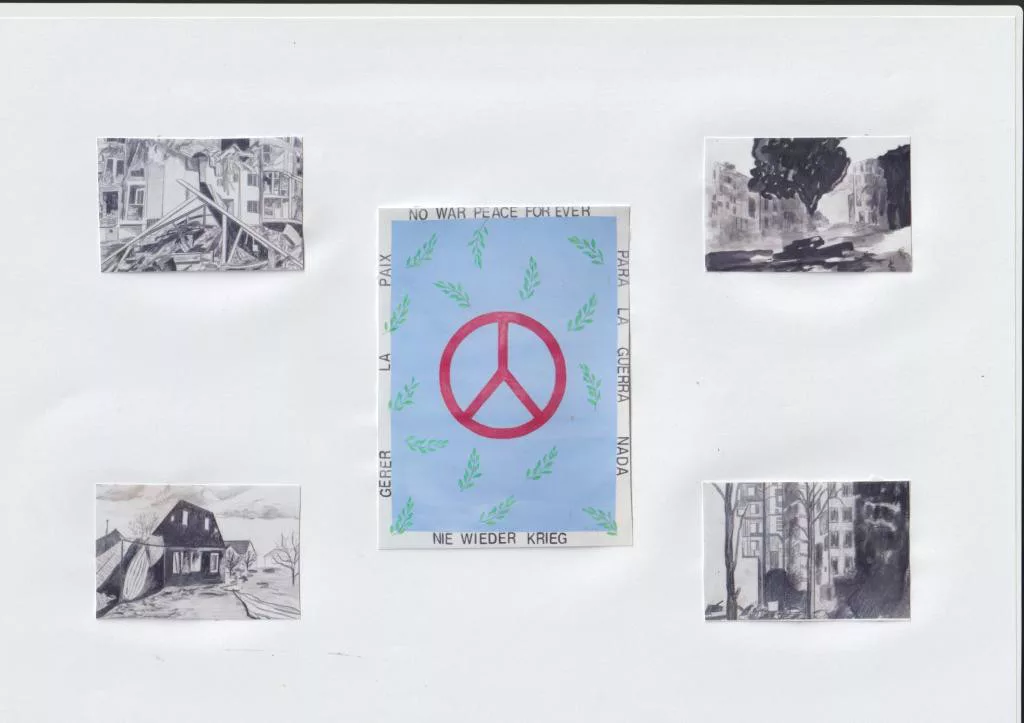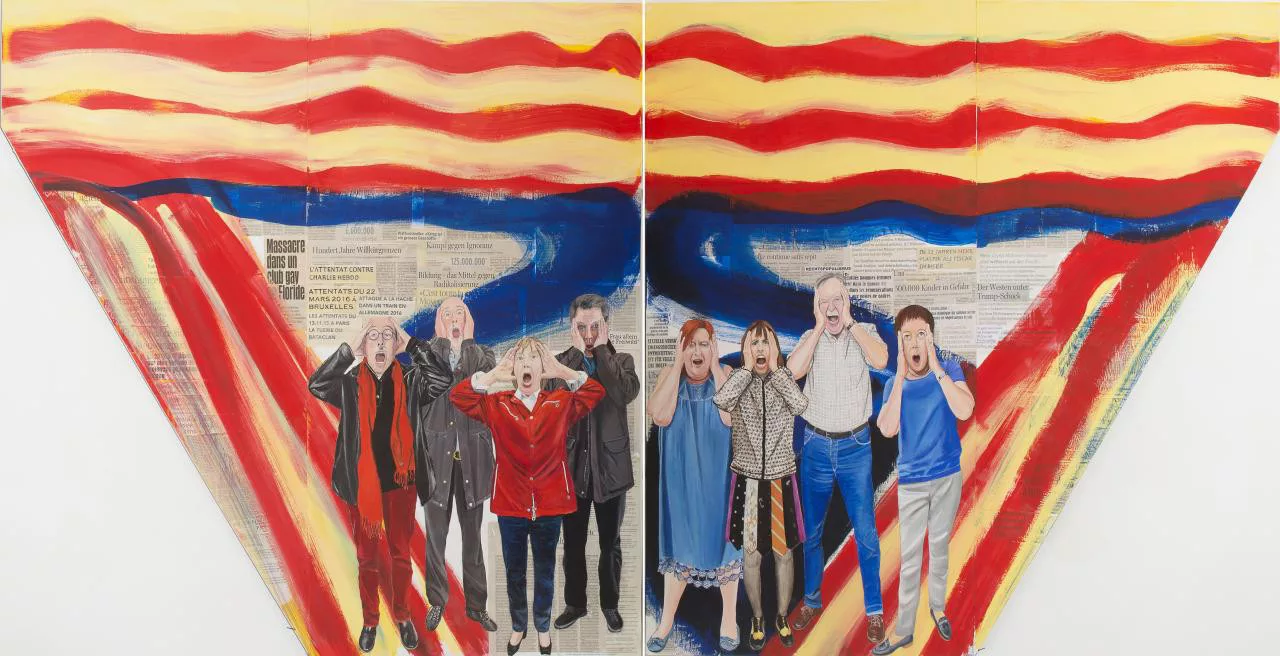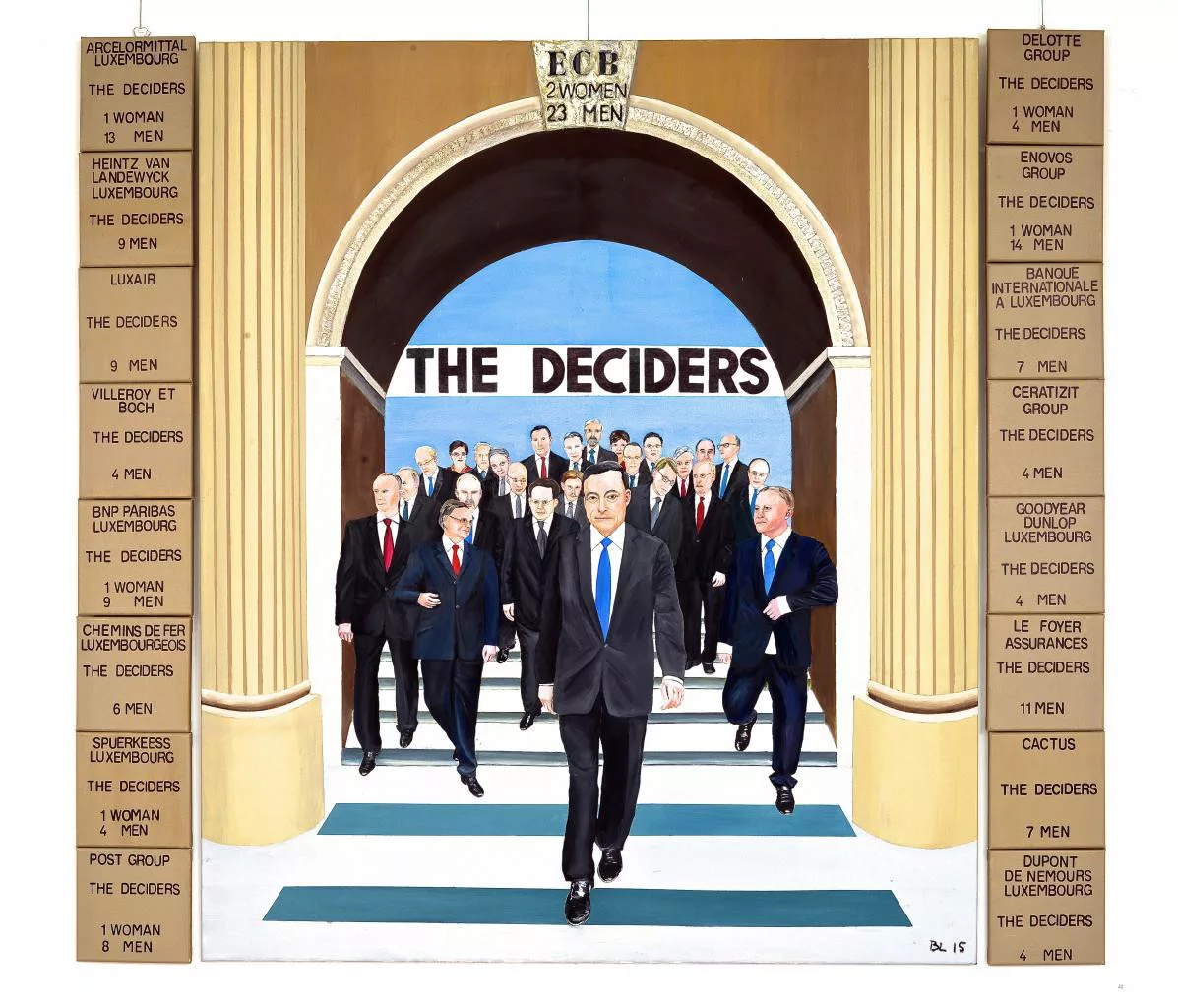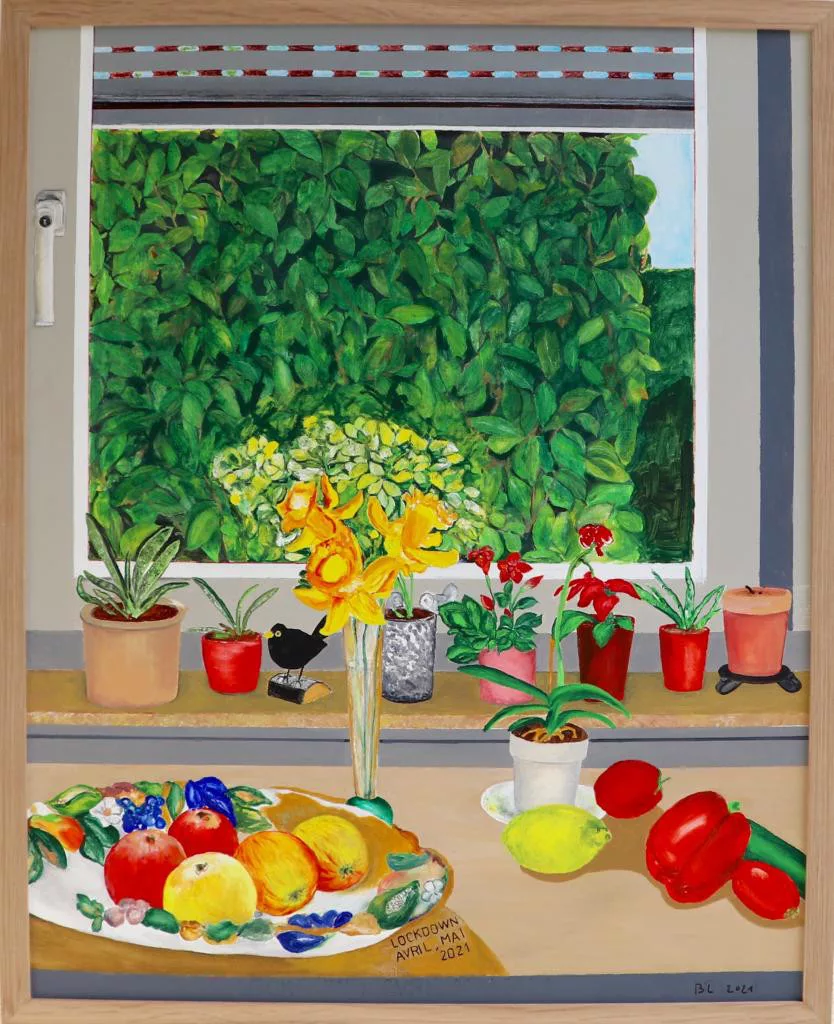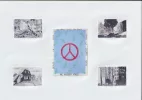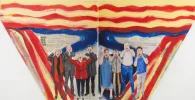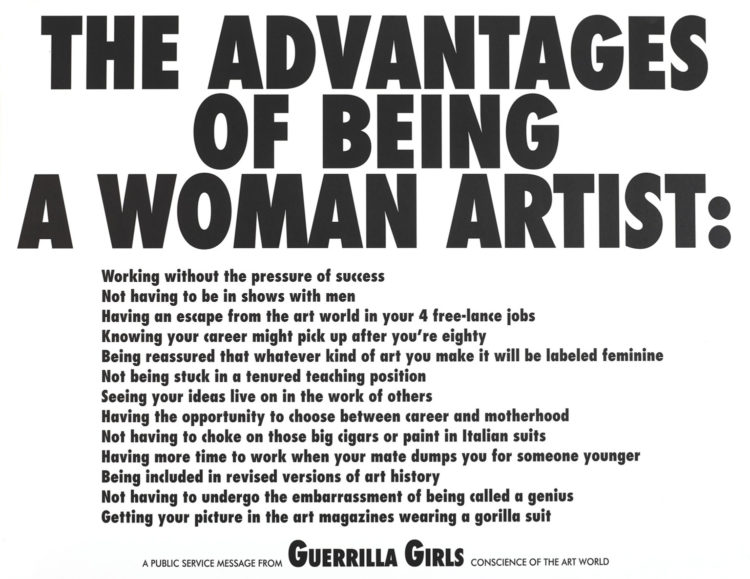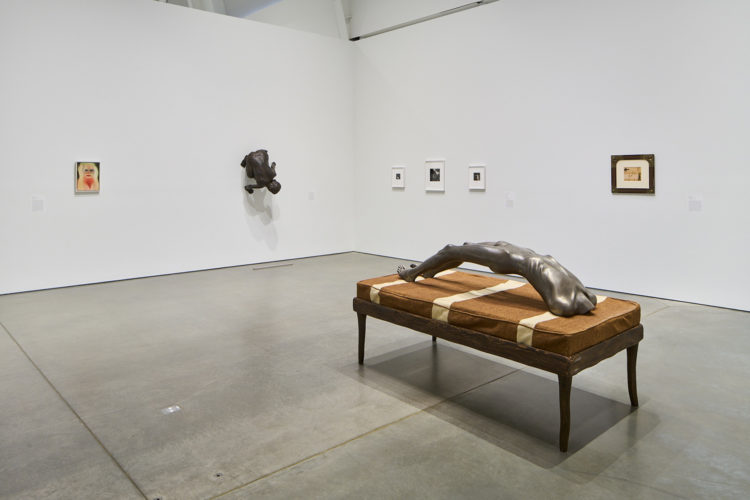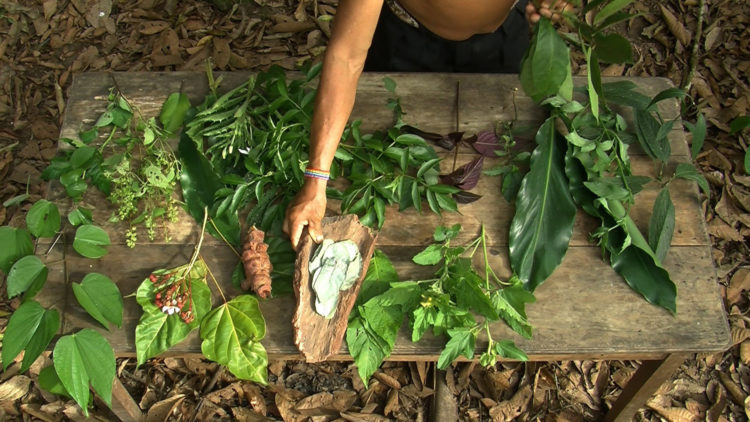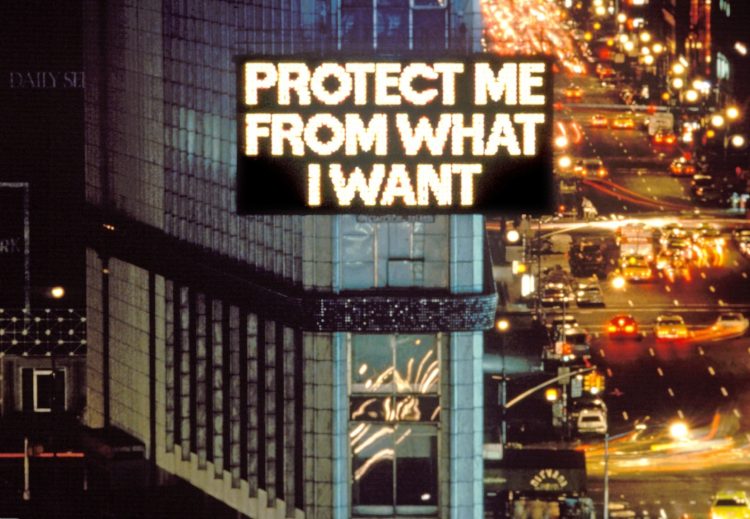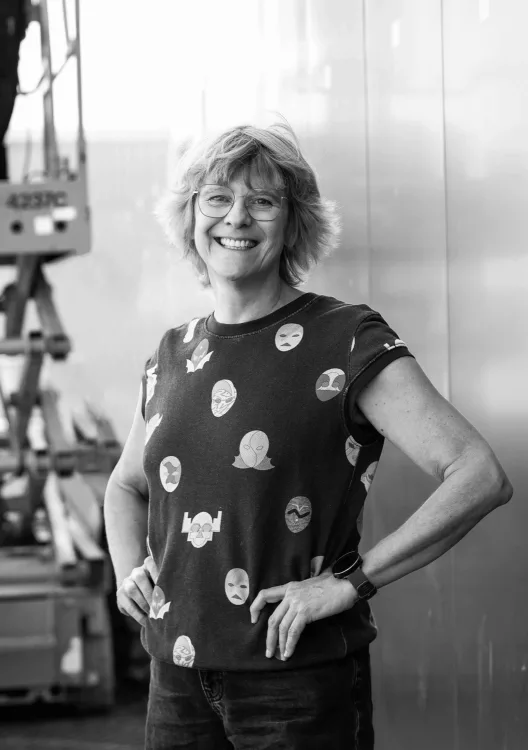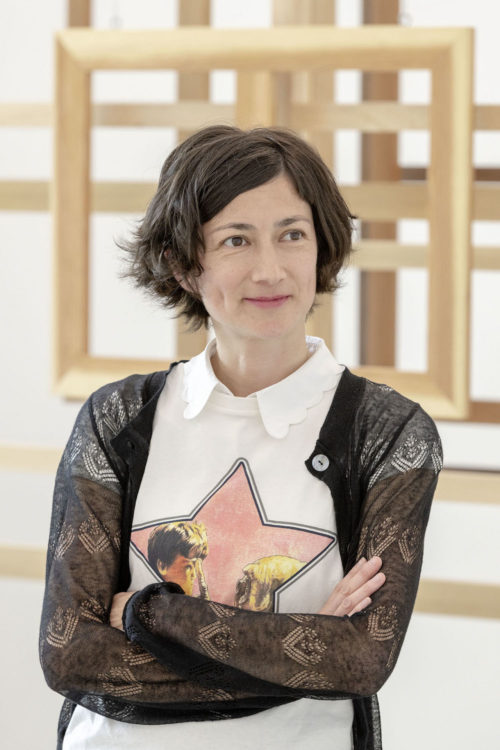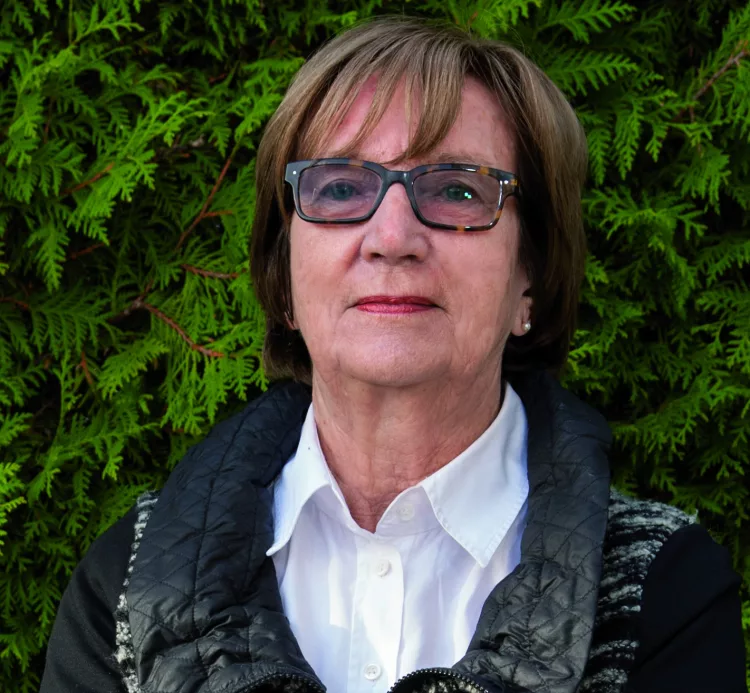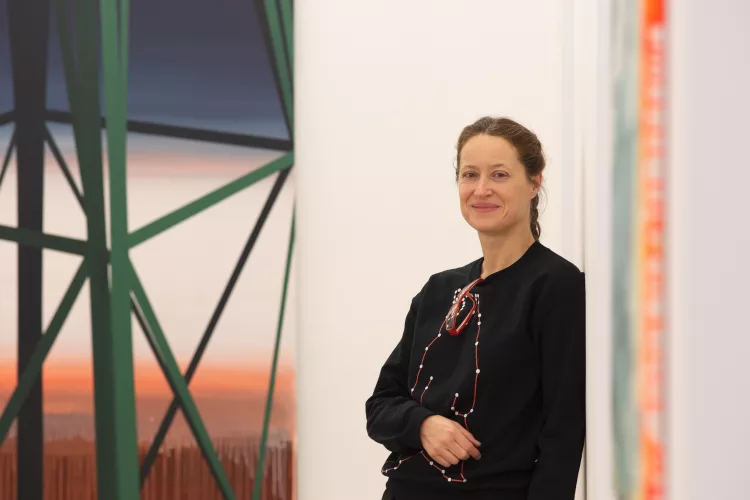Berthe Lutgen
Lutgen, Berthe (ed.), L’enjeu, Luxembourg, (Self-publishing), 2021
→Nowara, Malgorzata, Wallenborn, Michèle and Zutter, Stefanie, Summer of ’69 – L’art politique de Berthe Lutgen et Misch Da Leiden depuis les années de révolte, exh. cat., Villa Vauban, Luxembourg (27 November, 2021–22 May, 2022), Luxembourg, Villa Vauban, 2021
→Mosar, Christian, Clarinval, France, Berthe Lutgen, Faire Face, Luxembourg, Ultimomondo, 2014
L’Emprise du Réel, Centre culturel de rencontre Abbaye de Neumünster, Luxembourg, 13 July–28 August, 2022
→Figure in Print, Bibliothèque nationale du Luxembourg et Musée national d’Histoire et d’Art, Luxembourg, Luxembourg, 22 January–27 June, 2021
→Summer of ’69 – L’art politique de Berthe Lutgen et Misch Da Leiden depuis les années de révolte, Villa Vauban-Musée d’art de la Ville de Luxembourg, Luxembourg, 27 November, 2021–22 May, 2022
Luxembourgish painter.
A pioneer of the happening, a concept she introduced to Luxembourg in 1969, Berthe Lutgen was a militant feminist from the start, founding the Mouvement de libération des femmes [Women’s liberation movement, MLF] in Luxembourg in 1971. Through her art, she campaigns for women’s bodily freedom and challenges patriarchal society.
B. Lutgen studied at the École nationale supérieure des beaux-arts in Paris (1959–1961), before attending the Munich Academy (1962). Her early practice was materialist, inspired by the Art Informel of Jean Léon Fautrier (1898–1964). In 1967 she turned towards figurative painting.
With the dissident atmosphere of May 1968 came a sense of permissiveness and artistic experimentation, and it was in this context that B. Lutgen co-founded the Arbeitsgruppe Kunst [Art Working Group, 1968–1970]. The collective created the work We call it Arden and we live in it (October 1968). In this living environment-painting, a 20 m2 pastiche of Le Déjeuner sur l’herbe, B. Lutgen was the sole woman amongst the artists installed on its artificial meadow.
The artist’s perspective is manifested in her emblematic Beinserie [Leg Series, 1969], which consists of five images of women’s bodies in knickers, painted using an airbrush and mounted on bright red Resopal board. The installation included a performance in which women stood, arms crossed, between the paintings, directly confronting the objectification symbolised by the images.
Between 1972 and 1976, B. Lutgen attended Düsseldorf Academy of Fine Arts, where she studied drawing under Joseph Beuys (1921–1986) and learned a type of screen printing that she would put to use in a personal crusade against sexist language in advertising. With this technique, she created powerful works that show a particular inventiveness with regards to collage and graphic design, such as Das Leben verläuft nun mal in Kurven [Life is made of curves, 1976].
Following a period studying French linguistics at the Rheinische Friedrich-Willems-Universität in Bonn (1978–1979), B. Lutgen became an art teacher in a secondary school in Luxembourg (1979–1996).
Throughout her career, B. Lutgen has deployed colourist language, drawn from life and enduringly indignant, to discuss the representation of women in society and in art, and ecological and humanitarian disaster and violence. Her work seeks to denounce, be it directly or through allusions, appropriations and misquotations, such as in her still life Lockdown (2021).
Amongst her most celebrated works, The Deciders (2015) is a visual synthesis of power: at the image’s centre is the former head of the European Central Bank, Mario Draghi, and at its edges, a list of statistics from major corporations that reveal the male hegemony in their leadership positions. In Der Schrei [The Scream, 2016], the depictions of her subjects parody the anguished posture of Edvard Munch’s (1863–1944) Scream. Finally, in the ten metre fresco La Marche des femmes (2017–2019), begun on the fortieth anniversary of the first International Women’s Day and completed for the centenary of women’s suffrage in Luxembourg, full-length portraits of women from different countries and of different ethnicities show them marching forward with determination.
In 2022 B. Lutgen was awarded the first Lëtzebuerger Konschtpräis, a national visual arts prize awarded by the Luxembourg Ministry of Culture. The prize recognised not only her singularity as an artist but also her civic activism for a wide range of social, political and environmental concerns.
A biography produced as part of the “AWARE x Luxembourg” programme, in partnership with Konschthal Esch and the City of Esch-sur-Alzette
© Archives of Women Artists, Research and Exhibitions, 2025


